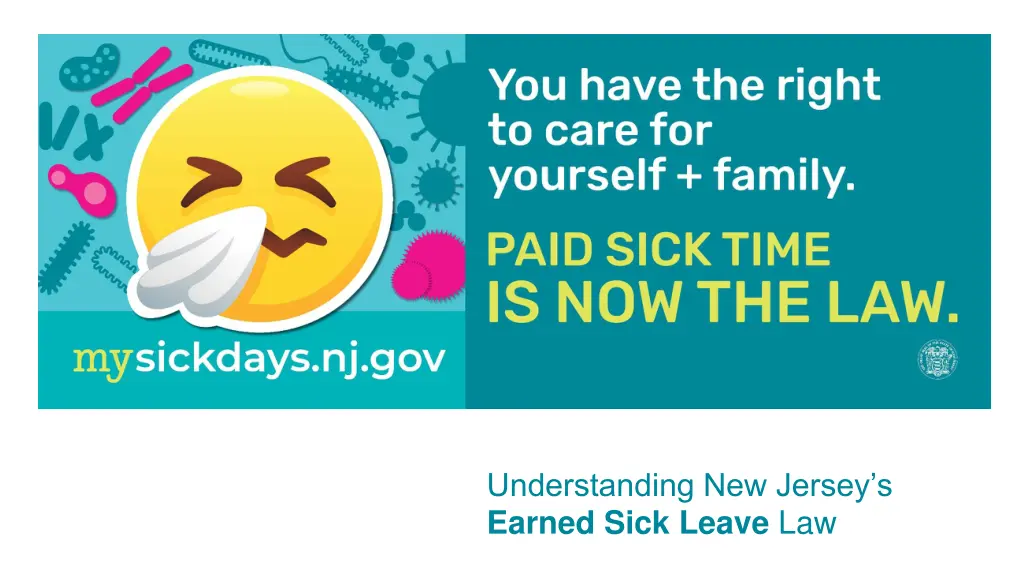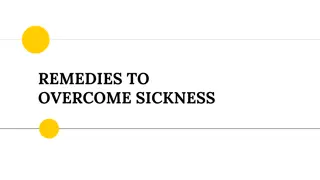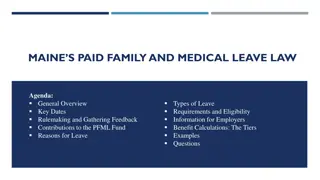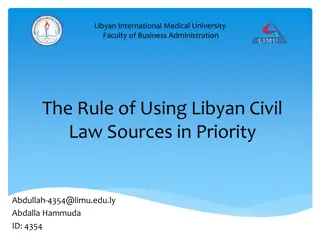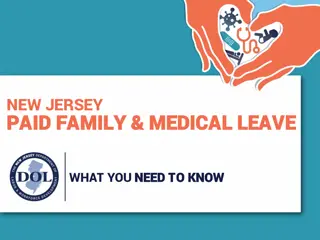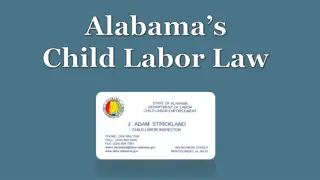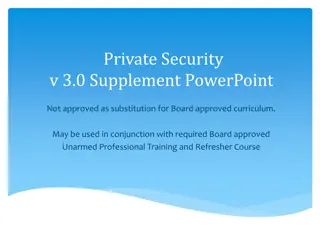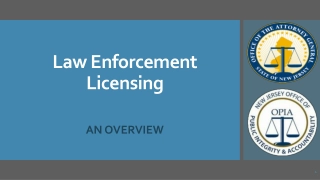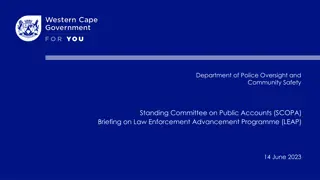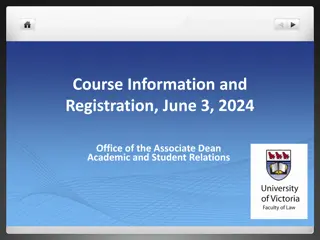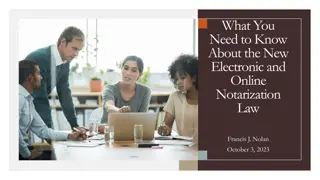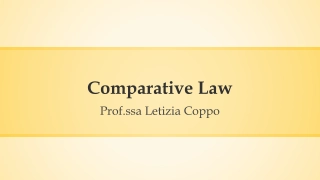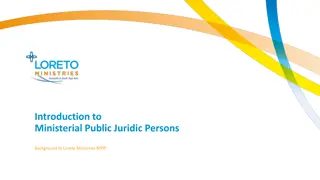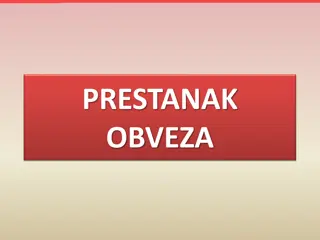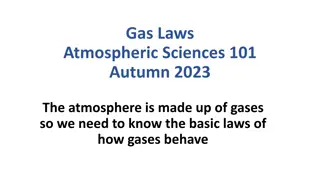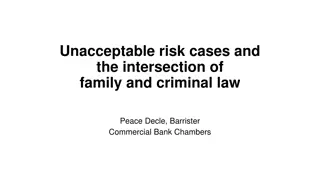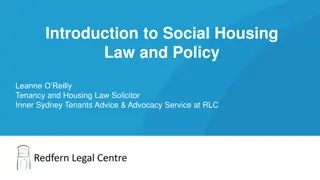Understanding New Jersey's Earned Sick Leave Law
NJ's paid sick leave law, who it covers, accrual rules, usage, employer obligations, and more. Ensure compliance and access resources. Visit my.sickdays.nj.gov for details. Popular
Download Presentation
Please find below an Image/Link to download the presentation.
The content on the website is provided AS IS for your information and personal use only. It may not be sold, licensed, or shared on other websites without obtaining consent from the author. Download presentation by click this link. If you encounter any issues during the download, it is possible that the publisher has removed the file from their server.
Presentation Transcript
Understanding New Jerseys Earned Sick Leave Law
Disclaimer This presentation provides general information, not legal opinion. The NJ Register and the NJ Administrative Code remain the official sources for regulatory information published by the NJDOL.
PowerPoint Presentation Introduction What is the law? Who is covered? What is the Notice of Employee Rights? How does sick leave accrue? When can I use earned sick leave? How am I paid for my sick days? What are some of the rules for employers? Conclusion
Introduction Applies to nearly ALL NJ Time to care for oneself and family Employers must ensure existing policies are in compliance Earned Sick Leave = Paid Sick Leave = Paid Sick Time = Paid Sick Day
Introduction NJ Department of Labor and Workforce Development oversees implementation and enforcement Required Notice of Employee Rights in 11 languages, one-page overviews, FAQs, and other helpful resources at mysickdays.nj.gov
What is the Law? Employers must provide employees with up to 40 hours of paid sick time per year to care for themselves and family. Employers may provide 40 hours up front or employees accrue 1 hour for every 30 hours worked.
Who is Covered? Applies to nearly ALL employees, full-time, part-time and temporary Regardless how you are paid- cash, piece rate or salary
Who is Covered? Per diem Seasonal Nonprofit Domestic workers Homemaker-home health aide Supervisors and managers Regardless of citizenship status Employees who work in NJ but employer is out of state
Who is Covered? ALL employers, regardless of number of employees Nonprofits Faith-based organizations Restaurants Farms Child care centers Nearly all employers
Who is Not Covered? The following people will not receive sick leave under this law: Union construction workers under a collective bargaining agreement Most per diem healthcare workers Public employees who are provided sick leave with full pay pursuant to any state law, rule or regulation Independent contractors (1099)
Collective Bargaining Agreement For employees with an existing collective bargaining agreement (CBA) in effect on October 29, 2018, no provision of the law shall apply until the expiration of the CBA Non-bargaining unit employees are still covered
A Notice of Employee Rights is required to be posted in the workplace. Notice of Employee Rights
How Does Sick Leave Accrue? 1 hour is accrued for every 30 hours worked -or- employer has the option to provide a lump sum/advance Employer can limit usage to 40 hours per benefit year.
When Can I Use Earned Sick Time? To care for yourself and family Physical and mental health or injury, or wellness care To get the COVID-19 vaccine and/or recover from side effects Domestic or sexual violence School meetings for your child Public health emergencies that closed work, or the school or place of care of child
What is the Definition of Family? Child (biological, adopted, or foster child; stepchild; legal ward; child of a domestic partner or civil union partner) Grandchild Sibling Spouse Domestic partner or civil union partner Parent Grandparent Spouse, domestic partner, or civil union partner of an employee s parent or grandparent Sibling of an employee s spouse, domestic partner, or civil union partner Any individual related by blood to the employee Any individual whose close association is the equivalent of family
Planned Sick Leave When employee has planned to use sick leave (for example: doctor s appointment for wellness care) Employer may require 7 days advance notice
Unplanned Sick Leave Employee is unable to reasonably anticipate their need for leave (for example: a child wakes up sick) Employer may require that employee notifies the employer as soon as possible
How Am I Paid for My Sick Days? Same rate employee normally earns (not including overtime) Different calculations exist for the following types of employees: Tipped Workers Multiple Rates of Pay Piecework Commission Your employer is required to pay you in the same or next pay period, and the pay must come with your regular pay check or another method that can be deposited or cashed easily.
Rules for Employers If an employee has a need for earned sick leave, an employer may require documentation only when: Employee has used 3 or more consecutive days It s a high-volume period for the business, or there is a special event Employer cannot require documentation for 1 or 2 days of absence
Rules for Employers (cont.) An employer cannot discipline an employee who uses earned sick leave for a permitted reason An employer is not allowed to require an employee to find coverage when using earned sick leave, or make up the hours Retaliation is against the law
What Can Retaliation Look Like? Discipline, discharge, demotion, suspension, a loss or reduction of pay, or any other adverse action. Examples include: Refusing to permit a worker to take an overtime shift Changing an employee s schedule Changing an employee s type of work Implementing a timekeeping system
Rebuttable Presumption The law also includes a rebuttable presumption provision. Rebuttable presumption is a legal principle that means something is taken to be true unless someone proves otherwise. If you File a complaint Cooperate with an investigation Tell others about an alleged violation, or Inform others of their rights and then within 90 days, your employer takes adverse action against you, the law requires NJDOL to presume that there has been unlawful retaliation. Then, your employer would have to prove otherwise. In legal terms, an adverse action generally means that it would dissuade a reasonable worker from exercising their rights.
What Happens to Unused Sick Leave? Unused leave time at the end of a benefit year is either carried over or bought back by the employer Up to 40 hours can be carried over per benefit year Employees are permitted to have more than 40 hours of ESL in their leave bank However, an employer is permitted to limit them to 40 hours usage or carry over per year
Are Your Rights Being Violated? Visit mysickdays.nj.gov Notice of Employee Rights in 11 languages One-page overviews FAQs Helpful resources File or download complaint form online
Filing a Wage and Hour Complaint File a complaint for free: Online: myworkrights.nj.gov Mail or Fax: New Jersey Department of Labor and Workforce Development Division of Wage and Hour Compliance, P.O. Box 389 Trenton, NJ 08625-0389 Fax: (609) 695-1174 Print a paper form at: nj.gov/labor/file
Tips on Filing a Complaint A trusted person may file on your behalf or help you file. Groups of employees must file separate complaints. Supply current address, contact information, description of claim, and any supporting documentation (e.g. time records, checks, pay stubs). Answer accurately and submit copies, not originals, of all relevant documents. You may be asked to provide additional details (i.e. employer information, hours worked). Farm workers, email farms@dol.nj.gov to tell us you ve filed or to get help. For questions for NJDOL, call (609) 292-2305 or email wage.hour@dol.nj.gov NJDOL will make every effort to provide assistance in your language
Confidentiality and Filing Anonymously If you filed a complaint or are a witness that provided a statement, we will protect your name and identifying information to the maximum extent allowable under the law. To file anonymously, file by mail or fax. Write ANONYMOUS in the name section of the complaint form and leave address blank. You won t receive information about your complaint or be able to check its status.
Protection from Retaliation Employers may not retaliate against you for filing a complaint, it s against the law. Employers that break the law can face fines and penalties. Learn more at myworkrights.nj.gov. NJDOL employees do not ask questions about immigration or citizenship and serve all workers regardless of their status. NJDOL will not share any information from an investigation with any federal immigration agency, unless legally required to do so.
NJ Work Rights & Benefits Overview myworkrights.nj.gov Info for tipped workers, farm workers, domestic workers Misclassification Safe and Healthy Workplaces NJ Paid Family and Medical Leave: myleavebenefits.nj.gov Job-Related Injuries: nj.gov/labor/workerscompensation NJ Law prohibits discrimination at work njcivilrights.gov
You have the Right to be Paid You re due the full amount of wages owed, for all hours worked, and no less than the applicable state minimum wage. Overtime: Most workers are owed 1.5 times regular hourly rate of pay for hours worked over 40 hours/week Public Construction (i.e., schools, buildings, roads): Contractors must register with the State and pay prevailing wage Misclassified as independent contractor (1099) or paid cash off the books: you re not at fault, but you could be deprived of work rights and other benefits. Misclassified employees may be entitled to financial award. Learn more at myworkrights.nj.gov
More NJ Work Rights & Benefits NJ Paid Family and Medical Leave Cash benefits to care for yourself and loved ones (requires valid SSN) Job may be protected under federal/state law myleavebenefits.nj.gov Job-Related Injuries You may be eligible for Workers Compensation nj.gov/labor/workerscompensation
More NJ Work Rights & Benefits Safe and Healthy Workplace Employers must follow state and federal OSHA standards nj.gov/labor/safetyandhealth NJ Law Prohibits Discrimination at Work njcivilrights.gov
LETS DISCUSS What questions do you have?
